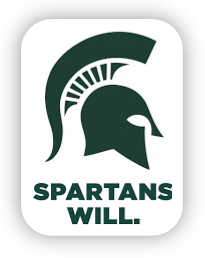Fall is here once again, bringing beautiful colors and cooler temperatures, along with new opportunities and challenges. Fall is an especially busy and exciting time at MSU, and this issue of the SPA Newsletter is packed with practical advice and resources to help make this busy time of the year a bit more manageable.
We have developed some helpful resources to assist you including our updated sponsor webpages, proposal timeline guidance, and FAQs for expense processing on RC accounts. Articles on getting your budget ready for review and making the most of your budget justification offer useful tips and advice that you can use to streamline and optimize the proposal submission process.
Other articles offer important updates on new policies or requirements. There are updates on the new travel requirements and changes to KFS revenue object codes. You will also find details on CGA’s revised process for institutional allowance, information on emerging federal guidance on foreign influence, and updated requirements for certain training grants. We have also provided an article on workplace resilience to help you manage stress and
maintain well-being during busy times such as these.
This issue also announces our Fall 2019 Unit Research Administrator Spotlight Award recipients. We are proud to sponsor this award and we welcome the opportunity to recognize the exceptional service of the recipients. We congratulate the winners of the Fall 2019 Unit Research Administrator Spotlight Award, and we also acknowledge and deeply appreciate the many other MSU research administrators who provide outstanding service in support of MSU’s research mission. Thank you for your commitment, for your support, and for all your effort for MSU.
I hope you enjoy the Fall 2019 issue of our newsletter. For suggestions for future content or feedback on this issue, please contact Jennifer Lafferty, stumpje1@osp.msu.edu or me, reighley@osp.msu.edu. Authors or contact information have been included in each article for topic-specific questions. My appreciation is extended to the authors.
Twila Fisher Reighley, Assistant Vice President for Research and Innovation
SPA/OSP/CGA has been diligently working on updating the Sponsor Information section of the SPA website. At the beginning of October, we rolled out new sponsor webpages that have a consistent format between sponsors and organizes the information with standard categories. Some of the categories are: What’s New, Proposal Guidelines, Budget Guidelines, Award Guidance, Compliance, Prior Approvals, Reporting, Record Retention, and more! A link to the Sponsor Information webpage can be found under the Resources section of the SPA website.
We hope the sponsor webpages will be a good resource for you when preparing proposals and managing sponsored projects.
If you have questions or comments related to the sponsor webpages please send them to: Laura Johnston, cooklau1@msu.edu.
The specific sponsor webpages include:
- Commodities
- Department of Defense
- Department of Energy
- Department of Justice
- Foundations
- National Aeronautics and Space Administration
- National Institutes of Health
- National Science Foundation
- State of Michigan
- United States Agency for International Development
- United States Department of Agriculture
- United States Department of Education

USDA (NIFA, AFRI) and NIH do not allow indirect costs on fellowship awards. Rather, these sponsors provide an annual fixed amount to support the costs of training called an institutional allowance. The allowance is intended to defray expenses for the individual fellow, such as research supplies, equipment, travel to scientific meetings, and health insurance and to otherwise offset, insofar as possible, appropriate administrative costs of training.
Because the institutional allowance is a fixed amount and institutions aren’t required to report the itemization of the expenditures, these funds are less restrictive in nature. You may be familiar with CGA’s previous practice of allowing the amount provided for institutional allowance to be redirected into an unrestricted department account. However, due to industry practice and audit trends, CGA is revising its process for institutional allowance. Going forward, funds awarded for institutional allowance will be placed in a child account of the main award.
As a reminder, NIH does have some restrictions on the rebudgeting of the institutional allowance in the Grants Policy Statement, for example:
- 11.2.9.4 If the fellow is not in training status for more than 6 months of the award year, both the stipend and the institutional allowance for the second half of the year must be returned
- 11.2.9.4 Funds may not be expended to cover the costs of travel between the fellow's place of residence and the domestic training institution, or for exams or interviews
- 11.2.9.8 In the rare case where institutional allowance may be unexpended, it can only be re-budgeted into the tuition and fees category when tuition and fees have been awarded
Regardless of the funding agency, all expenses must be allowable, reasonable, allocable and consistently treated.
For any questions regarding institutional allowance, please contact Stephanie Hay at haysteph@cga.msu.edu or Stacy Salisbury at salisbury@cga.msu.edu.
KFS object codes for sponsored program revenue have been recently updated. In the past, object code 4057 Other Grants & Contracts has been used to report revenue in RC accounts. Effective July 1, 2019, revenue is identified by its source of funds. The below three main object codes will be used for RC accounts:
- 4057 Other Grants & Contracts
- 4062 Federal Grants & Contracts
- 4085 State Grants & Contracts
For RG accounts, revenue object code 4007 Gifts Expendable should be used for research gifts. For RG account revenue that is not a gift, i.e. a scope of work exists, reporting is required, or some type of exchange is made (payment received for a deliverable, service or other output), then object code 4057 Other Grants and Contracts should be used.
If you have questions about the correct revenue object code to be used, please contact: CGA Cash Management Team at cashmanagement@cga.msu.edu
Beginning 10/1/2019, NIH and AHRQ (Agency for Healthcare Research and Quality) training grant recipients will be required to use the xTRACT system in the eRA Commons to prepare the required data tables for Research Performance Progress Reports (RPPRs) for pre- and postdoctoral research training grants. This applies to NIH and AHRQ T15, T32, T90/R90, and TL1 awards. Guidance on preparing the required tables for the RPPR can be found here: Extramural Trainee Reporting and Career Tracking (xTRACT) User Guide and NIH Grants & Funding Data Tables
The complete policy announcement (NOT-OD-19-108) can be found at: Required Use of the xTRACT System to Prepare Data Tables for Training Grant Research Performance Progress Reports in FY 2020
**NOTE: Recipients of other types of predoctoral, postdoctoral, and career-level training, education, and career development awards that currently use training data tables (e.g., T37, R25, K12/KL2 awards) will not be required to use the xTRACT system to prepare tables for RPPRs in FY 2020.
New Training Grant, Fellowship, Research Education and Career Development Award ID Required
Beginning in FY 2020 individuals supported by research training, fellowship, research education, and career development awards will be required to have an ORCID iD (Open Researcher and Contributor Identifiers).
ORCID iD’s are unique, persistent digital identifiers that distinguish individual investigators and can be used to connect researchers with their contributions to science over time and across changes of name, location, and institutional affiliation. These free identifiers are assigned and maintained by the non-profit organization ORCID.
eRA profiles must be linked to the ORCID profile. More information can be found here: Requirement for ORCID iDs for Individuals Supported by Research Training, Fellowship, Research Education, and Career Development Awards Beginning in FY 2020
The ORCID ID

Resilience is the capacity to recover, move forward, and carry on in difficult circumstances. Resilience is an especially valuable skill for Research Administrators. The frequently changing guidelines, short turnaround times, and other day-to-day challenges of the job make resilience necessary in this line of work.
It is important to note that resilience is a skill that can be cultivated, not an inherent quality that people do or do not possess. We can all take steps to become more resilient. Lisa Laughman, a counselor with MSU’s Employee Assistance Program and an Emotional Wellness Consultant for Health4U, has developed a framework for resilience that can be applied to any situation. The basic steps of the framework are:
Acknowledge—Honor—Release—Relax—Reflect—Resolve
When faced with a daunting proposal, an overspent budget, or a SOW gone awry, it’s helpful to acknowledge where you are and what your reality is. It may be helpful to say it out loud, if the situation allows. Honor your feelings and initial reactions as normal and expected for someone faced with your circumstances. Then release those feelings. Release your frustration, anger, and other negative emotions in a healthy way. Take advantage of any opportunity to become and stay calm. Deep breathing and meditation, exercise classes, journaling, and spending time with friends or family may help. Relax into your usual self and connect with your values. Reflect on your challenges, your strengths, and your way forward. Soon you will see your way through your present difficulties, and you will have the resolve to move forward. This process should be repeated as needed to see you through your challenges.
Taking care of your physical, mental, and emotional well-being can help you to become more resilient. MSU offers several resources to promote health and wellness among its workforce. Health4U offers programming in nutrition, emotional wellness, physical activity, and other health-related areas. It also houses the Employee Assistance Program. Other resources on campus include: the WorkLife Office, Recreational Sports and Fitness Services, Eat at State, and more.
There are many small steps that you can take to become more resilient. Reach out to someone and ask for help with a big project. Take a break when you feel stressed. Exercise or practice meditation. Reflect on the positive aspects of your day. Drink more water. Prioritize a passion in your life by adding it to your calendar (and make a point of keeping those appointments, even when you are busy).
In time, small changes can become long-lasting habits that strengthen your resilience and enhance your life, both personally and professionally. As you practice the steps in the framework, you may find that your stress levels decrease and your senses of contentment and satisfaction grow.
MSU’s research administration offices of Sponsored Programs Administration (SPA), Office of Sponsored Programs (OSP), and Contract and Grant Administration (CGA) encourage excellence and exemplary service modeled through The Spartan Experience by recognizing professional contributions and quality of service through the Research Administration (RA) Spotlight recognition.
We have completed the sixth award nomination and review process, and received nominations for strong applicants who exhibit many of the qualities of a good research administrator. The Recommendation Panel, which includes faculty (from the Council of Research Deans and Sponsored Programs Advisory Committee), selected the two following individuals to receive this award. They are recognized with a plaque of accomplishment along with a small financial award as a token of our appreciation.

Erin has over 10 years of service at MSU, and her office primarily provides pre-award grant support to a number of units in the Colleges of Human Medicine and Osteopathic Medicine. They are currently providing interim staffing to the College of Nursing to support their research functions as well. Her office also serves as a post-award resource for units, along with managing a small portfolio of grants.
What do you enjoy most about your job here?
“The most gratifying part of my job is knowing that our team helps alleviate the administrative burden of proposal preparation and compliance for our faculty. Our primary goal is to allow investigators to focus on the science while we take care of the rest. I am grateful to work with a phenomenal group of professionals and I genuinely enjoy the work we do. After 15 years in research administration, I continue to learn every day. I know that will continue until I retire!”
What advice do you have for new research administrators?
“A career in research administration is full of opportunities to learn and grow. If you try one position and do not enjoy it, seek out other opportunities in the field. There are positions in pre-award and post-award at the central, college and department levels and in various research related compliance offices that might be more professionally fulfilling. We have a great network of research administrators across all units at MSU that are happy to help mentor folks interested in a career in the field.”

Barb will be celebrating 10 years of service at MSU next month, and her current position supports CAL as the pre-award administrator. She began her MSU career working on the KC project team where she tested the system, reported bugs and suggested changes. She has 24 years of pre– and post-award experience overall, working at two tier-one research universities (MSU and UofM). Her previous experience includes working at a historic theatre doing fundraising where she wrote a grant that was funded for $40,000!
What do you enjoy most about your job here?
“I enjoy helping our faculty and students find funding for their research, scholarly, and creative activities. I love the people I work with. You can do the same work anywhere, but it’s the people that make all the difference! Arts & Letters has provided me with flexibility in my work schedule, and my Research Associate Dean and administrative supervisor have encouraged me in my professional development. In addition, we’ve added a post-award research administrator to our team which has helped in many ways. These things contribute to a very happy work environment.”
What advice do you have for new research administrators?
“Research Administration is the type of job where you constantly encounter new things and new issues. Things don’t stay the same for long, so I’ve found flexibility is an important key to enjoying the work. One successful initiative Arts & Letters has implemented in the past few years is to hold grant kickoff meetings. We’ve had a lot of positive feedback from faculty and fiscal officers, and it seems to help get everyone on the same page before the work, spending, and problems begin.”

Thank you, Erin and Barb, for playing an integral role in advancing MSU’s research mission and for leading by example! We truly appreciate your dedication and hard work.
Stay tuned for another chance to nominate your favorite research administrator for the RA Spotlight Award next spring! Please contact Erin Schlicher at schlic11@osp.msu.edu with any questions.
Foreign influence has become a hot-button issue. The federal government has become increasingly concerned with issues described under the heading of foreign influence on research, primarily the diversion of intellectual property, sharing of confidential information provided to peer reviewers, lack of disclosure of research support, and the influencing of priorities, practices, and funding decisions by foreign entities. As a result, multiple federal agencies, including NIH, DOD, NSF, DOE, and U.S. Department of Education have issued statements about disclosing international collaborations, affiliations, activities, and/or interests.
The NIH has reinforced and expanded reporting requirements related to foreign influence. We are reminded that prior approval is required for foreign components of NIH-funded projects, defined by the agency as, “the performance of any significant scientific element or segment of a project outside of the United States either by the recipient or by a researcher employed by a foreign organization, whether or not grant funds are expended.” Examples may include human subjects or animals, foreign travel, use of facilities or resources,collaborations, or any involvement that may impact U.S. foreign policy. Additionally, NIH has updated its disclosure requirements for Other Support and foreign affiliations and has issued stricter protections for confidential information related to intellectual property ownership and the peer review process. We encourage you to review our recent communication on Other Support, Foreign Components, and Financial Conflicts of Interest.
Although NIH and several other agencies have released their own statements on foreign influence concerns, definitive requirements to help institutions mitigate the risks are not yet available. There are indications, however, that the federal government is planning a more coordinated effort through the Office of Science and Technology Policy (OSTP). Four of the five agencies referenced above have specifically indicated their guidance/direction will be delayed. NSF, for example, is delaying release of the 2020 Proposal & Award
Policies & Procedures Guide (PAPPG) that would normally go into effect in January.
To help faculty and staff stay current with the emerging federal guidelines, the Office of the Senior Vice President for Research and Innovation (OSVPRI) has developed a webpage: https://vp.research.msu.edu/foreign-influence-guidance. Agency-specific information will also be referenced on the sponsor pages on the SPA/OSP/CGA website and the resources will be updated as new information
becomes available. Resources are being developed to support implementation of the requirements and will be linked as appropriate on the OSVPRI page.
For questions related to proposal and award requirements, e.g., Current and Pending Support, Foreign Component, please contact SPA/OSP/CGA. If you are developing a proposal, please contact your Proposal Team. If you have a question related to an award that has already been funded, please email awards@cga.msu.edu.
At SPA/OSP/CGA, we strive to provide excellent customer service in all stages of research administration, from proposal development to the final closeout of an award. We continue to use client feedback surveys to solicit feedback on our proposal, award, and post-award processes. Ratings response details are available on the SPA Metrics section of our website (two-factor authentication required).
The SPA/OSP/CGA Management Team, Sponsored Programs Advisory Committee (SPAC), and Council of Research Deans (CORD) held several discussions over the past couple of years on leveraging campus resources to support faculty. One of the top priorities identified in these discussions was recruiting interested and qualified candidates to research administration positions at MSU. As a result, the RA Recruiting Video Workgroup was formed, including Lori Bramble (CANR), Dania Diaz (CNS), Erin Gorman (CHM), Tracy Halloran (SPA), Jennifer Lafferty (SPA) and Shannon Lutz (formerly SPA). This workgroup created a recruiting video that can be posted on your unit's website(s) and/or linked in relevant MSU job postings! Please view the video here (and use this link when posting): https://mediaspace.msu.edu/media/RA+Recruiting+Video/1_zj4mrhxx

We extend our sincere gratitude to the faculty and staff featured in this video!